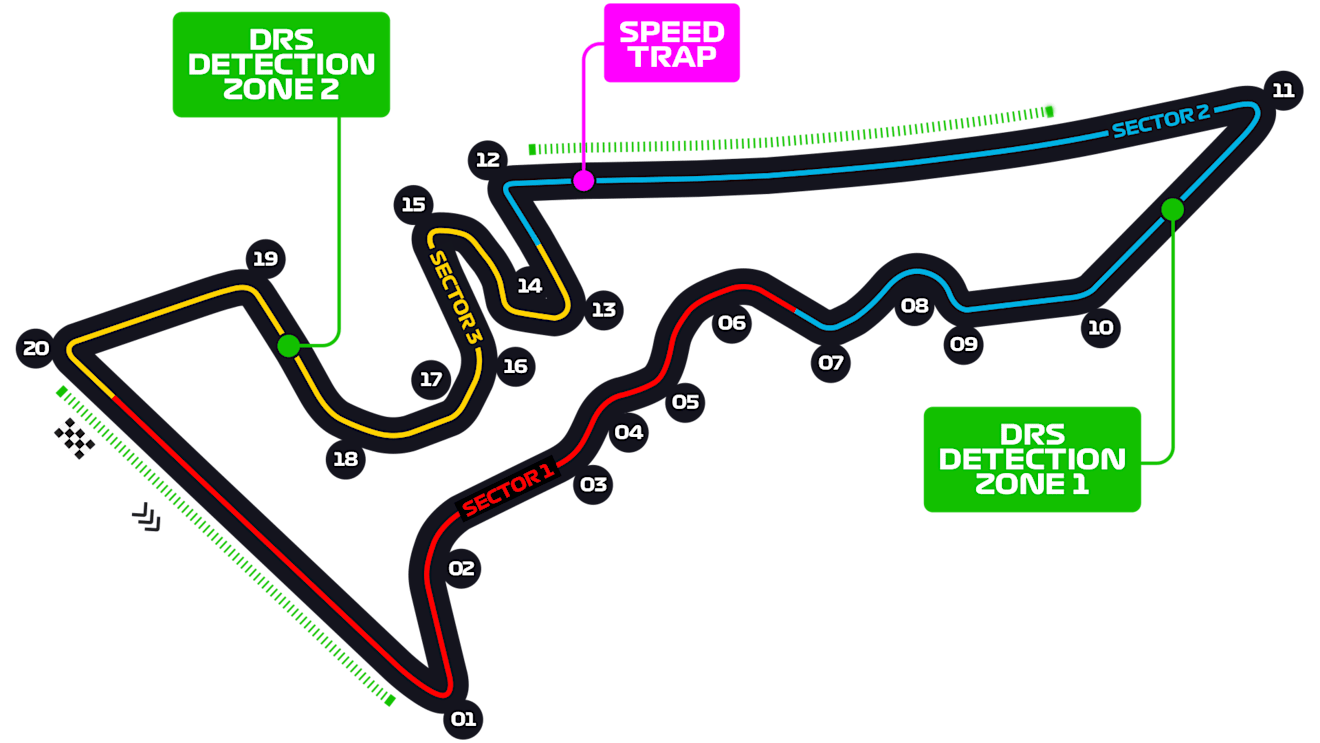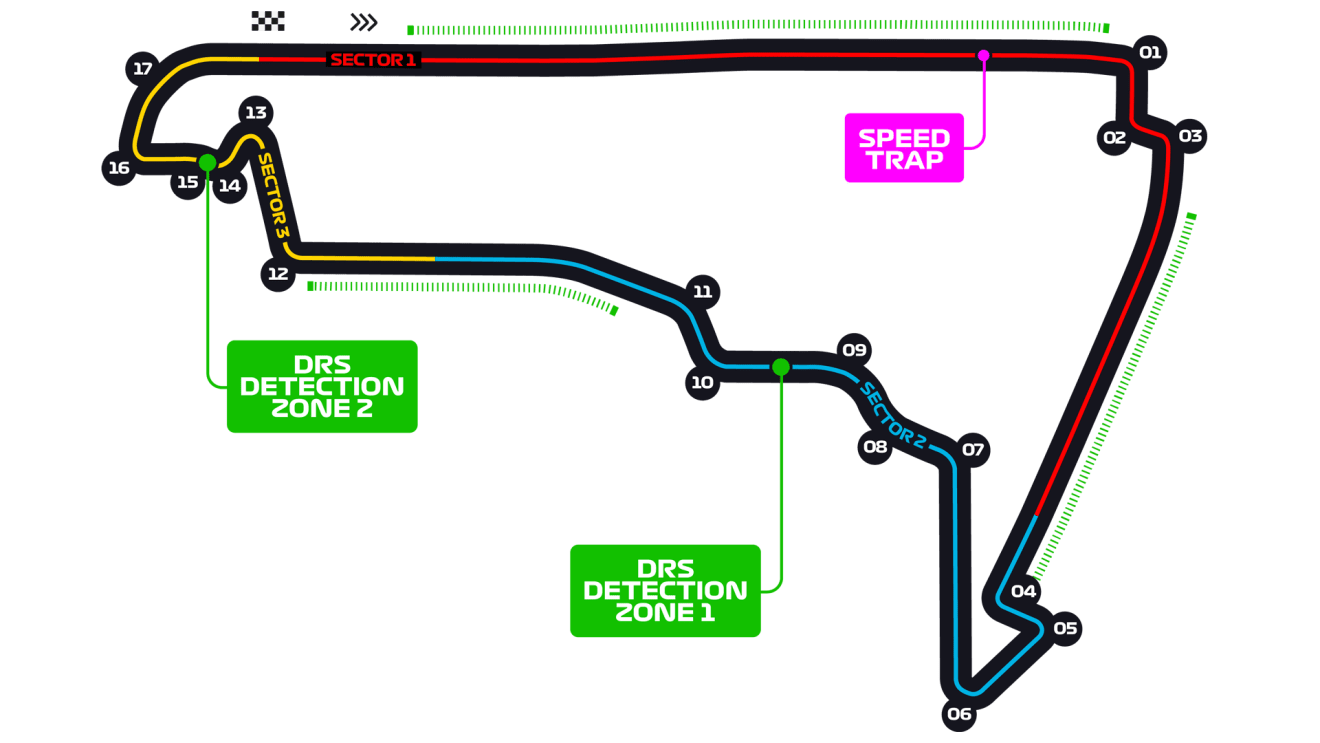1. Minimum Age Requirement for F1 Super Licence
Race: -
Incident: Max Verstappen was signed by Toro Rosso for the 2015 season at just 16 years old, making his F1 debut at 17 years and 166 days—the youngest driver in Formula 1 history.
Rule Change: The FIA introduced new Super Licence requirements effective from the 2016 season. Drivers must be at least 18 years old to be eligible, have accumulated at least 40 points over the previous three seasons in specified lower categories, and have completed a minimum number of kilometers in testing, along with holding a valid road driver's licence.
2. The "Verstappen Rule" – Moving Under Braking
Race: 2016 Japanese Grand Prix
Incident: Verstappen aggressively defended against Lewis Hamilton by moving under braking into the chicane, forcing Hamilton to take evasive action.
Rule Change: The FIA prohibited drivers from changing direction under braking in a way that could cause an avoidable collision. Drivers must not move unpredictably or change direction under braking when defending, and must leave at least one car's width between their own car and the edge of the track when defending.
3. Expansion of the "Verstappen Rule" – Dangerous Defensive Maneuvers
Race: 2016 Belgian Grand Prix
Incident: Verstappen made aggressive defensive moves against Kimi Räikkönen, including moving under braking and weaving on straights, leading to safety concerns.
Rule Change: The FIA expanded the rule to penalize any dangerous defensive maneuvers. Drivers are not allowed to make more than one change of direction to defend a position. Any movement that impedes another driver in a dangerous manner is prohibited, and stewards were given increased authority to penalize unsportsmanlike conduct.
4. Use of Alternate Lines and Track Limits
Race: 2017 United States Grand Prix
Incident: Verstappen overtook Kimi Räikkönen for third place on the final lap by going off-track and cutting inside the track limits at Turn 17.
Rule Clarification: The FIA provided clarifying definitions of track limits and enforced consistent penalties. The track is defined by the white lines; drivers must keep at least one wheel within these lines at all times. Overtaking or gaining a lasting advantage by leaving the track is prohibited. Stewards were instructed to apply penalties uniformly for track limit violations.
5. Driver Conduct and Physical Altercations
Race: 2018 Brazilian Grand Prix
Incident: After a collision with Esteban Ocon, Verstappen confronted and physically pushed Ocon multiple times in the FIA weigh-in area.
Rule Change: The FIA strengthened regulations against unsportsmanlike conduct off the track. Drivers must conduct themselves professionally and with respect. Physical altercations can result in penalties such as community service, fines, or suspension, emphasizing the importance of maintaining the sport's integrity.
6. Formation Lap Overtaking Clarification
Race: 2021 Emilia Romagna Grand Prix
Incident: Verstappen overtook Lewis Hamilton during the formation lap before the race start.
Rule Clarification: The FIA clarified rules regarding formation lap conduct. Drivers must maintain their grid positions during the formation lap unless a car is delayed leaving the grid. Overtaking is only permitted if a car is delayed and others cannot avoid passing it without unduly delaying the remainder of the field. Procedures were clarified to ensure all drivers understand acceptable behavior before the race start.
7. Clarification on Forcing a Driver Off-Track
Race: 2021 Brazilian Grand Prix
Incident: Verstappen defended his position by pushing Lewis Hamilton wide at Turn 4, causing both cars to leave the track.
Rule Clarification: The FIA issued clearer guidelines on overtaking and defending. If an overtaking car is significantly alongside, the defending driver must leave at least one car's width of space. Drivers must not deliberately force another driver off the track. Detailed criteria were provided for stewards to assess incidents consistently.
8. Technical Regulations on Rear Wings and Parc Fermé
Race: 2021 Brazilian Grand Prix
Incident: After qualifying, Verstappen touched and inspected Hamilton's rear wing in parc fermé conditions.
Rule Clarification: The FIA reinforced rules regarding parc fermé conditions. Drivers and team personnel are prohibited from touching or examining rival cars during parc fermé. Strict penalties, including fines and sporting penalties, can be applied for violations. Security measures were enhanced, with increased monitoring and enforcement.
9. Double Yellow Flag Compliance
Race: 2021 Qatar Grand Prix
Incident: Verstappen failed to sufficiently slow down for double-waved yellow flags during qualifying.
Rule Clarification: The FIA reinforced the importance of yellow flag compliance. Stricter penalties were introduced for Verstappen's failing to respect yellow flags.
10. Brake Testing and Sudden Deceleration
Race: 2021 Saudi Arabian Grand Prix
Incident: Verstappen braked suddenly in front of Hamilton while attempting to let him pass, leading to a collision.
Rule Clarification: The FIA reinforced rules against dangerous driving behaviors. Sudden deceleration or "brake testing" that endangers other drivers is strictly prohibited. Procedures for safely yielding positions were clarified, including proper communication protocols between teams and race control. Stricter penalties were introduced to deter such actions.
11. Restrictions on Post-Race Celebrations and dangerous driving over the Finish Line
(
edit - suggested by u/SomewhereAlarmed9985)
Race: 2021 Styrian Grand Prix
Incident: Verstappen slowed down and performed burnouts or drifted over the finish line to celebrate his victory, which was deemed potentially dangerous.
Rule Clarification: The FIA reinforced regulations prohibiting dangerous driving after the chequered flag, including burnouts and drifting over the finish line. Drivers are required to proceed safely to parc fermé after finishing the race. Post-race celebrations must not endanger other drivers, marshals, or spectators.
12. Safety Car Restart Procedure Change
Race: 2021 Abu Dhabi Grand Prix
Incident: Verstappen often drew alongside the car ahead during safety car restarts, notably during the controversial 2021 Abu Dhabi Grand Prix where he pulled alongside Lewis Hamilton before the restart.
Rule Change: The FIA updated the safety car restart procedures: Drivers must remain in a single line without overlapping until the race resumes. Overtaking or drawing alongside another car before crossing the start/finish line after the safety car has pulled into the pits is prohibited. Drivers cannot gain an advantage by positioning themselves alongside the car ahead during a restart.
13. Clarification of Pitlane Exit Rules
Race: 2023 Monaco Grand Prix
Incident: During the race, Max Verstappen appeared to cross the pit exit line when rejoining the track, leading to controversy over whether he violated the rules.
Rule Clarification: The FIA tweaked the pitlane exit rules to clarify that drivers must not cross any part of their car over the pit exit line when rejoining the track. The updated rule specifies that touching or crossing the line with any part of the car constitutes a violation.








